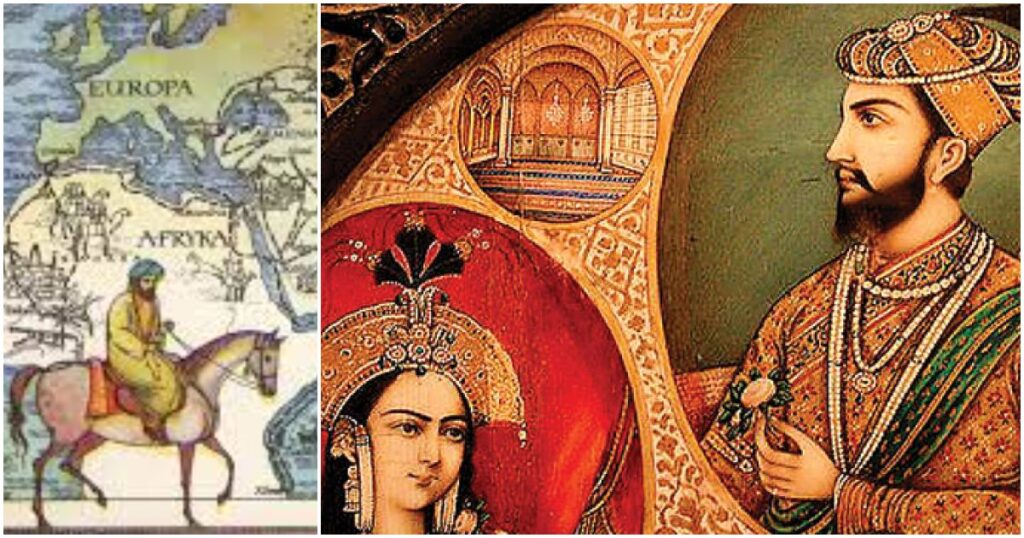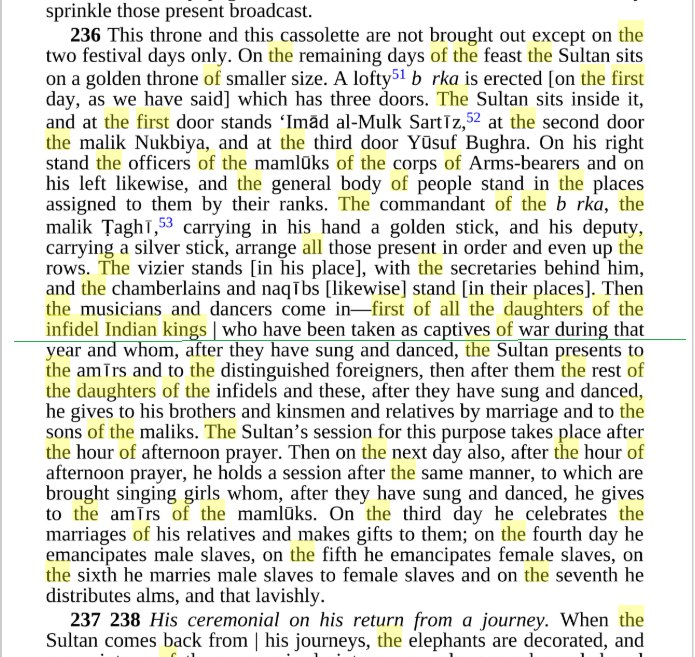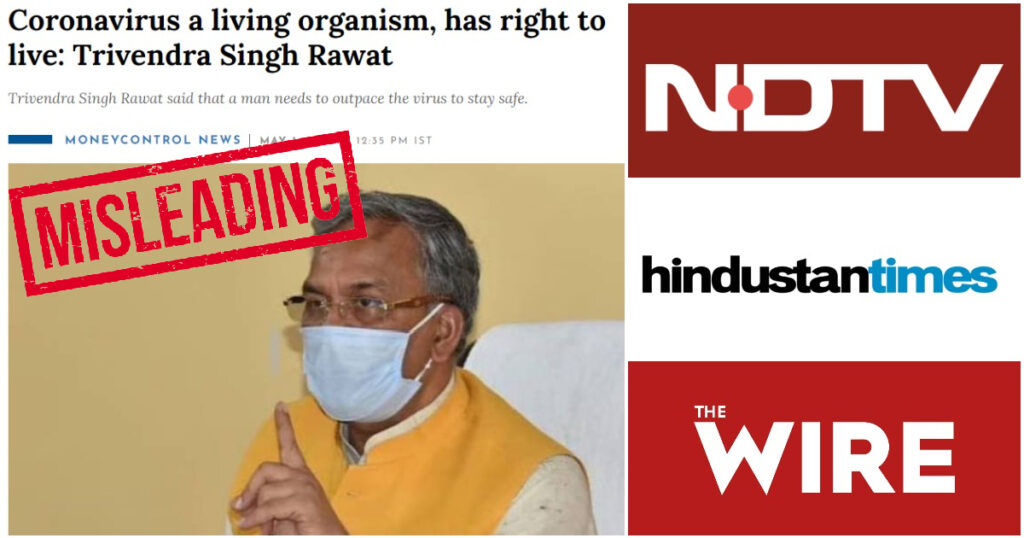India’s secularism project has tried its hardest to portray how harmony existed between India’s Muslim invaders and the native Hindu kings, but first-hand sources from that period paint a completely different picture.
Ibn Battuta was one of the world’s greatest travelers. Born in Morocco in 1304, he set off on a legendary worldwide journey, crossing southern Eurasia, Central Asia, Southeast Asia, South Asia, and had finally ended up in China. He had spent a considerable amount of time in India, and had shared his first-hand experiences of what he saw.


Now Twitter user Bharadwaj Speaks, who is an expert in ancient Indian texts, has uncovered what Ibn Battuta had written about how Eid was celebrated in India. At that time, the Tughlaq dynasty was ruling over Delhi, with its reign beginning in 1320.
Ibn Battuta describes a grand celebration, with the Sultan sitting on a special throne. “This throne and this cassolette are not brought out except on the two festival days only. On the remaining days of the feast the Sultan sits on a golden throne of smaller size. A lofty barka is erected [on the first day, as we have said] which has three doors. The Sultan sits inside it, and at the first door stands ‘Imad al-Mulk Sartiz,” at the second door the milk Nukhiya, and at the third door Yusuf Bughrai,” he writes.
But there was an aspect of the celebration that’s hidden by modern historians — how daughters of defeated Hindu kings were made to sing and dance, and then presented as gifts to nobles and foreigners. “Then the musicians and dancers come in—first of all the daughters of the infidel Indian kings who have been taken as captives of war during that year and whom, and after they have sung and danced, the Sultan presents to the amirs and to the distinguished foreigners, then after them the rest of the daughters of the infidels and these, after they have sung and danced, he gives to his brothers and kinsmen and relatives by marriage and to the sons of the maliks,” Ibn Battuta had written.
These parts, have, of course, been whitewashed by Nehruvian historians, and millions of children have grown up in India through generations without knowing of the horrors is Islamic rule. But with social media wresting control of the narrative away from the leftist gatekeepers, Indians are slowly but surely learning their own real history.
Here’s the entire text of the excerpt:


This throne and this cassolette are not brought out except on the two festival days only. On the remaining days of the feast the Sultan sits on a golden throne of smaller size. A lofty barka is erected [on the first day, as we have said] which has three doors. The Sultan sits inside it, and at the first door stands ‘Imad al-Mulk Sartiz,” at the second door the milk Nukhiya, and at the third door Yusuf Bughrai On his right stand the officers of the mamlaks of the corps of Arms-bearers and on his left likewise, and the general body of people stand in the places assigned to them by their ranks.
The commandant of the barka, the malik Taght,” carrying in his hand a golden stick, and his deputy, carrying a silver stick, arrange all those present in order and even up the rows. The vizier stands [in his place], with the secretaries behind him, and the chamberlains and naqtbs [likewise] stand [in their places]. Then the musicians and dancers come in—first of all the daughters of the infidel Indian kings who have been taken as captives of war during that year and whom, and after they have sung and danced, the Sultan presents to the airs and to the distinguished foreigners, then after them the rest of the daughters of the infidels and these, after they have sung and danced, he gives to his brothers and kinsmen and relatives by marriage and to the sons of the maliks.
The Sultan’s session for this purpose takes place after the hour of afternoon prayer. Then on the next day also, after the hour of afternoon prayer, he holds a session after the some manner, to which are brought singing girls whom, after they have sung and danced, he gives to the amirs of the marnlaks. On the third day he celebrates the marriages of his relatives and makes gifts to them; on the fourth day he emancipates male slaves, on the fifth he emancipates female slaves, on the sixth he marries male slaves to female slaves and on the seventh he distributes alms, and that lavishly.

